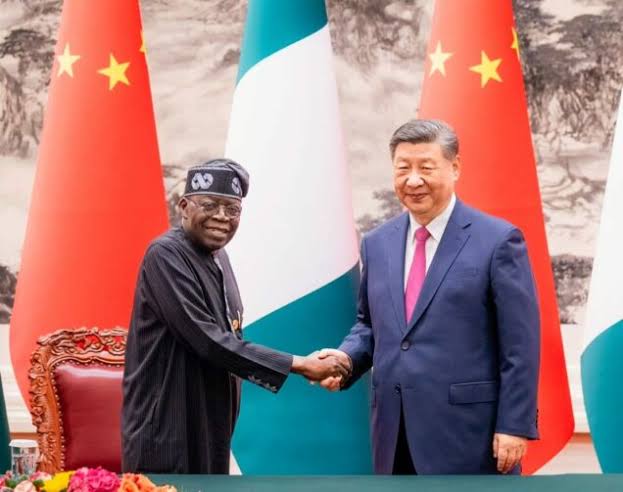The Nigerian Government has entered into two significant Memorandums of Understanding (MoUs) with Mutual Commitment Company (MCC) Limited of China to create Nigeria’s first Renewable Energy Academy. The agreements were facilitated by the Rural Electrification Agency (REA) and were witnessed by Nigeria’s Minister of Power, Adebayo Adelabu, and the Managing Director of REA, Mr. Abba Aliyu.
At the signing ceremony in Beijing, held on the eve of the African-China Cooperation Summit, Minister Adelabu described the MoUs as a pivotal development for Nigeria. He commended the REA and the National Power Training Institute of Nigeria (NAPTIN) for their efforts, noting that this initiative aligns with Nigeria’s vision for advancing renewable energy and enhancing the electricity value chain.
Adelabu highlighted the shared challenges faced by Nigeria and China, particularly in terms of energy access and job creation. He expressed satisfaction that the initiative is occurring under President Bola Tinubu’s administration, aligning with the Renewed Hope Agenda and supporting the administration’s focus on power sector reforms.
The Minister underscored that energy access and expansion are top government priorities, noting that the centralised power sector approach has not been effective. With nearly 40% of Nigerians lacking access to reliable energy, the government is shifting towards a distributed power model to better serve rural areas and critical institutions such as educational and health facilities.
Adelabu also emphasised Nigeria’s commitment to transitioning to cleaner, sustainable energy sources. He outlined the country’s long-term targets of achieving net-zero carbon emissions by 2060 and sourcing 30% of its energy from renewables by 2030. The new MoUs aim to foster local capacity development in the renewable energy sector and reduce dependence on imports.
The Minister compared Nigeria’s electrification progress with that of Northern African countries, noting that while countries like Tunisia, Morocco, Egypt, and Algeria have achieved nearly full electrification, Nigeria is at 62%. He expressed confidence that Nigeria’s natural resources and the new initiatives will help improve electrification, drive GDP growth, and create local jobs.
Mr. Abba Aliyu stressed the importance of the MoUs in fulfilling the Presidential mandate to build local capacity and create employment opportunities. He committed to tracking the progress and economic impact of the initiative.
MCC Vice Chairman Yan Zhezhu praised Nigeria’s commitment to energy growth, highlighting ongoing projects in Maiduguri and Kaduna. He affirmed MCC’s dedication to expanding its activities in Nigeria.
In related news, Nigeria’s national grid recently reached a record high of 5,313 megawatts. Minister Adelabu urged Distribution Companies to utilise this surplus energy to prevent grid instability, while acknowledging challenges with tariff structures and meter penetration as cited by industry officials.

